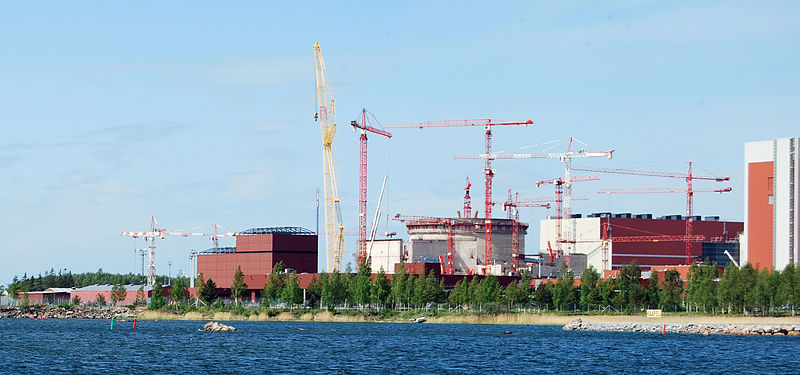The nonresidential building market was hamstrung by weather-related delays during the first part of the 2014, but conditions improved dramatically throughout the rest of the year to finish with greater than anticipated spending levels. The commercial construction sector is now looking at double-digit increases in 2015, led by vigorous levels of demand for hotels and office buildings.
The American Institute of Architects’ (AIA) semi-annual Consensus Construction Forecast, a survey of the nation’s leading construction forecasters, is projecting that spending will see a 7.7% increase in 2015, with next year’s projection nudging up to 8.2%.
VIDEO: Q1 2015 Economic Forecast
“This is the first time since the Great Recession that every major building category is projected to see increases in spending,” said AIA Chief Economist, Kermit Baker, PhD, Hon. AIA. “But by far, the most significant driver that will fuel greater expansion in the marketplace is the revival in the institutional sector, especially with growing demand for new healthcare and education facilities, which alone traditionally account for a third of spending on new building construction.”
Baker continued, “The overall construction industry appears to be on very solid ground for the next two years. That said, uncertainties in international economies, potential labor shortages, lower energy costs, rising interest rates and construction costs all are factors that we will be watching closely to see how they may adversely impact the marketplace.”
Market Segment Consensus Growth Forecasts
Overall nonresidential building
2015: 7.7%
2016: 8.2%
Commercial/industrial
2015: 11.8%
2016: 10.4%
Hotels
2015: 15.3%
2016: 10.4%
Office buildings
2015: 12.9%
2016: 11.5%
Industrial facilities
2015: 10.5%
2016: 10.1%
Retail
2015: 10.1%
2016: 9.0%
Institutional
2015: 5.0%
2016: 5.4%
Amusement/recreation
2015: 9.1%
2016: 5.3%
Education
2015: 4.7%
2016: 5.2%
Healthcare facilities
2015: 4.7%
2016: 6.2%
Public safety
2015: 1.7%
2016: 3.6%
Religious
2015: 1.2%
2016: 3.6%
About the AIA Consensus Construction Forecast Panel
The AIA Consensus Construction Forecast Panel is conducted twice a year with the leading nonresidential construction forecasters in the United States including, McGraw Hill Construction, Wells Fargo Securities, IHS-Global Insight, Moody’s economy.com, Reed Business Information, Associated Builders & Contractors and FMI. The purpose of the Consensus Construction Forecast Panel is to project business conditions in the construction industry over the coming 12 to 18 months. The Consensus Construction Forecast Panel has been conducted for 16 years.
Related Stories
| Aug 11, 2010
Stimulus funding helps get NOAA project off the ground
The award-winning design for the National Oceanic and Atmospheric Administration’s (NOAA) new Southwest Fisheries Science Center (SWFSC) replacement laboratory saw its first sign of movement on Sept 15 with a groundbreaking ceremony held in La Jolla, Calif. The $102 million project is funded primarily by the American Recovery and Reinvestment Act (ARRA), resulting in a rapidly advanced construction plan for the facility.
| Aug 11, 2010
JanCom Technologies expands headquarters
JanCom Technologies, Inc., an Austin, Texas-based technology, infrastructure, audio-visual, and critical power systems consulting and engineering services firm, continues to grow due to an influx of high-profile international projects. The company recently expanded to a 5,000-square-foot office space at 206 Wild Basin Road. The move represents a 2,000-square-foot increase in space to accommodate the company’s growth.
| Aug 11, 2010
New book on ‘Green Workplace’ by HOK’s Leigh Stringer, a BD+C 40 under 40 winner
The new book The Green Workplace is a comprehensive guide that demonstrates how green businesses can reduce costs, improve recruitment and retention, increase shareholder value, and contribute to a healthier natural environment.
| Aug 11, 2010
LEED 2009 cites FloorScore Certification as indicator of indoor air quality
The U.S. Green Building Council (USGBC) has cited FloorScore® certified flooring products as eligible for credits under the new LEED 2009 Version 3 guidelines. Reflecting the inclusion of FloorScore, the new LEED IEQ Credit 4.3 for Low-Emitting Materials has been expanded from “Carpet Systems” to “Flooring Systems” to include hard surface flooring.
| Aug 11, 2010
BIM adoption rate exceeds 80% among nation’s largest AEC firms
The nation’s largest architecture, engineering, and construction companies are on the BIM bandwagon in a big way, according to Building Design+Construction’s premier Top 170 BIM Adopters ranking, published as part of the 2009 Giants 300 survey. Of the 320 AEC firms that participated in Giants survey, 83% report having at least one BIM seat license in house, and nearly a quarter (23%) have 100-plus seats.
| Aug 11, 2010
New air-conditioning design standard allows for increased air speed to cool building interiors
Building occupants, who may soon feel cooler from increased air movement, can thank a committee of building science specialists. The committee in charge of ANSI/ASHRAE Standard 55 - Thermal Environmental Conditions for Human Occupancy—after months of study and discussion--has voted recently to allow increased air speed as an option for cooling building interiors. In lay terms, increased air speed is the equivalent of turning up the fan.
| Aug 11, 2010
Rouss & Robertson Halls
University of Virginia McIntire School of Commerce
Charlottesville, Va.
Rouss Hall, a historic 24,000-sf building designed by Stanford White, served as the home of the University of Virginia’s McIntire School of Commerce from 1955 to 1975. Thirty years later, the university unveiled plans to have the business school return to the small, outdated 110-year-old facility, but this time with the addition of a 132,000-sf companion building to be named Robertson Hall.
| Aug 11, 2010
PCA partners with MIT on concrete research center
MIT today announced the creation of the Concrete Sustainability Hub, a research center established at MIT in collaboration with the Portland Cement Association (PCA) and Ready Mixed Concrete (RMC) Research & Education Foundation.







